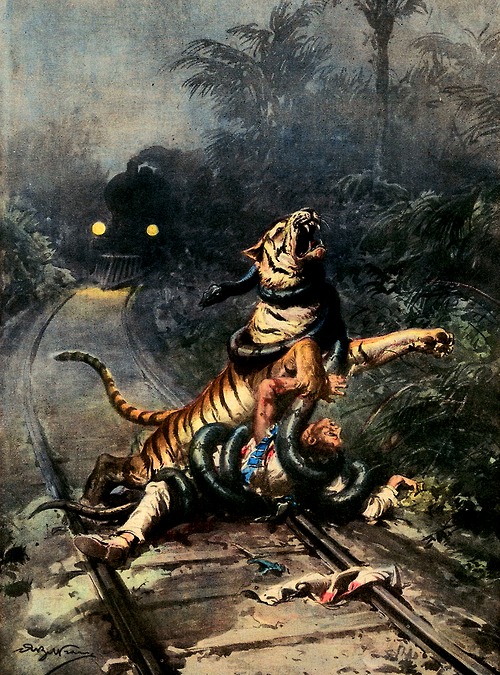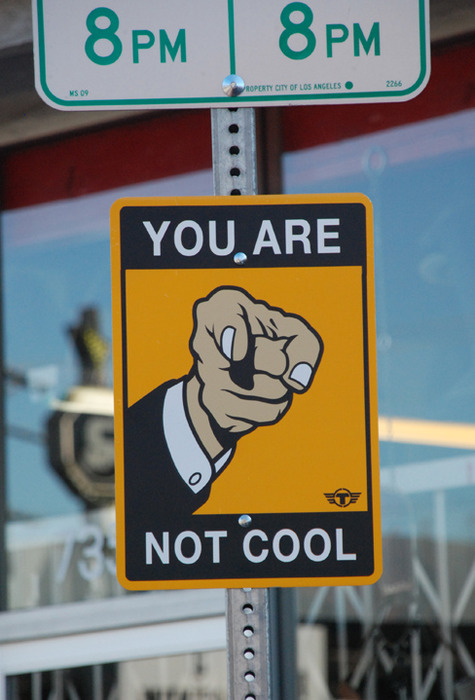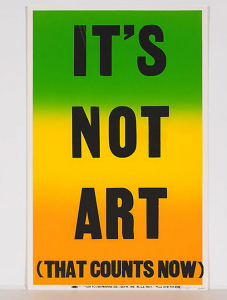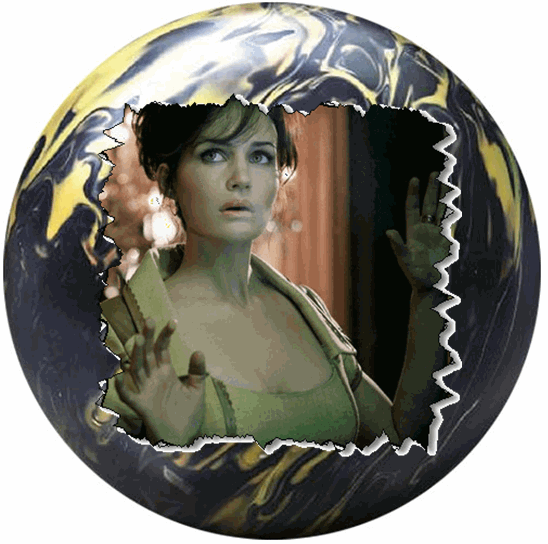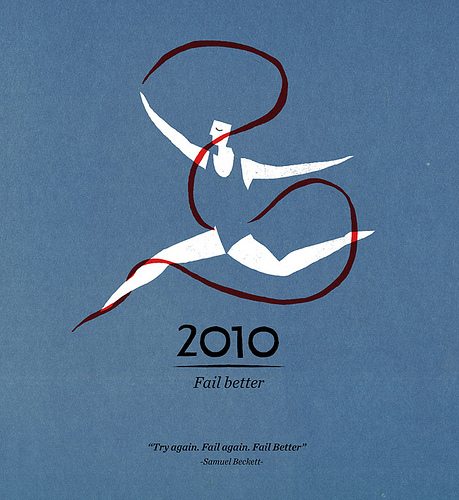Okay. This one’s been waiting awhile. Consider it a ponder-gift for the weekend.
Storytime
It’s August. It’s South Dakota. It’s hot. I’m headed back to college, driving the Brown Beater. The Brown Beater is a real piece of crap; it overheats if you idle in one place for too long, it overheats if you drive it too slow (not that that ever comes up for me), it overheats if drive it too fast, it’s ugly as hell, it’s missing the front grill (my fault), and it has no air conditioning.
So this is me: driving down the interstate on the way back to school, maintaining my speed somewhere in the high 70s, both windows rolled down, trying to figure out how and where I’m going get gas (because there’s no way the Beater is going to get me 210 miles on a single tank, but if I stop, I’ll overheat and need a half hour before I can open the radiator cap).
And the highway patrol pulls me over.
Now, let me put this in perspective: we are not talking about the enlightened interstates of the twenty-first century. Yes, even today 78 would be speeding in most states, but it’s not as much speeding as it was at that time, because back then the speed limit on the interstate was 55.
55.
78.
Pretty big ticket.
So the guy pulls me over. He’s probably having a pretty good weekend, because I am in no way the only guy driving back to school. This is all pretty routine for him:
“Do you know how faster you were going? No, more than that. No, higher. No… come on, you’re not even trying.”
He gets my registration (which has my sister’s and dad’s name on it; short-but-uninteresting story) and driver’s license, writes down the plate number, and moseys back to his car.
I don’t know what was said on the radio when he called it back in, but I assume it was pretty routine. In any case, he came back up to the Beater with the ticket half-written, and hands me my DL and registration.
“I need to verify the VIN for the ticket,” he says.
“Whats a VIN?” I reply, sincerely, because at that time in my life, I’m totally that guy.
“It’s a…” he shakes his head. “It’s a number on a plate that identifies your car.”
I don’t point out that that also describes the licence plate, because I can demonstrate learning behavior.
Most of you probably know this, but the VIN number for most cars is located in a spot that’s pretty easy to see (by design) but pretty hard to get to (also by design) — usually under your windshield, way down in the bottom corner on the driver’s side, on a small plate that’s kind of bolted to the dashboard … really, to the part of the car that your dashboard is affixed to.
The guy steps around to look at the VIN.
He can’t see it.
Now, the Brown Beater was so-called because it was brown, not because it was dirty; the reason he couldn’t see the number wasn’t a filthy windshield, it was because something was in the way.
Or, as he put it, “there is a piece of paper obscuring the VIN.” I thought it sounded a lot more ominous when he said it that way.
What had happened was that I’d put something up on the dash — probably months before — and it had slid down into that tiny little slot of space between the windshield and the dash, right over top of the VIN plate. This wouldn’t normally be a problem, except it was something like a business card. It was small.
It was im-fucking-possible to remove.
You’d have thought the guy had found Jimmy Hoffa in my trunk. Calls to dispatch were made to request advice. He inquired as to the availability of backup. He came back and tried to get that damned piece of paper out no less than three times, between these calls.
In his mind, that piece of paper was Hiding Something. See, the VIN was written down already. It was on the vehicle registration — he didn’t need to record it; he just wanted to make sure the two numbers matched.
But a VIN he couldn’t see? An obscured VIN? Suddenly all kinds of scenarios presented themselves. He reconsidered the condition of the vehicle. The fact that my name wasn’t on the registration. He even came back and asked me where my first name was “from” at one point. I heard him ask a couple times to verify that the car matched no stolen vehicle reports from ANY state, and “are you sure?”
I just kind of sat there, being bemused. I didn’t really see what the bid deal was; since I knew I hadn’t stolen the car, it never occured to me that he might think I had — I mean, who the fuck would steal this car, willingly? (Also, I knew I had another couple minutes of sitting by the side of the road before the Beater would cool down enough to start anyway. No rush, dude… no rush.)
But the fourth time he came back to the car, I got interested, because he told me that he’d “give it one more try” and, if he couldn’t get the “obscuring item” (dude, it’s paper) out of the way, he was going to call in and have the car towed.
Yes, seriously.
I had to act.
By which I mean I reached into the back seat, grabbed a piece of notebook paper, folded it in half lengthwise, and scooped the card out of the way. Took about a minute.
He just kind of stared. I handed him the registration again, and he stared at that too. Then he compared the two, saw that they matched, checked again, and handed the registration back.
He mustered what remaining authority hadn’t been bled away in the heat and interstate noise, admonished me against allowing “foreign objects” to slide where they shouldn’t (only moderately useful advice, that), told me to drive safe, and went back to his vehicle.
I waited.
He started his cruiser up and took off.
I… still… waited.
Then I started the Beater up and got moving again, with a pretty goofy grin on my face.
Because he’d forgotten to finish writing the speeding ticket.
Which had been the whole point in the first place.

It’s kind of easy to get distracted, sometimes; to lose track of The Thing This Is About because of the flashing, noisy Thing This Is Not About.
Let’s say you’re working on a story, and it’s at that point where you’re sending it out to people and getting feedback and (maybe) making appropriate changes based on that feedback. Maybe it’s your agent. Maybe it’s your publisher. Maybe it’s your reading group. Maybe it’s your mom. Doesn’t matter.
And that first round of feedback comes back and someone says:
“You know, I like it, but what I’d love to see fleshed out a little more is the relationship between the main character and the dog. The dog isn’t a big part of the story right now, but it used to be really important to her, so… I dunno, it just seems like adding some more stuff with them would add some nice depth to the MC, you know?”
And all that? That’s a good idea — one of those headslappingly good ideas that immediately presents you with about five ideas for what to write. Good stuff.
Then the second round of revisions happens, and you send it out again, and the feedback this time is something like:
“Loved it. I can really see the main character better. I saw you did some more stuff with the dog, and I liked it, but it seems like it isn’t quite clicking, you know? Maybe just a little more, to really get make that relationship crystal clear.”
And… okay, yeah, you can see where they’re coming from… and you can probably figure out a way to punch that up some. Okay…
Another round of revisions.
“Man, you are so close with that dog relationship, man. SO close. Two or three more scenes, and I think you’ve got it. Maybe something at the lake, in the summer…”
There are two things you can do at this point.
- Write a scene with the dog at the lake.
- Remember that the story isn’t about the fucking dog. Or even about the MC and the dog. The dog isn’t even a Character as much as Color.
If you chose option 1, you have lost track of what you were originally there to do.

We all see this. We all do this. We get hung up on one little stick-up nail, spending so much time time trying to bang that sucker down that the end of the day comes and we realize “shit, I never finished building the house.”
Arguments about whose turn it is to take the dogs for a walk, when the whole point of the day was to spend some time together, outside.
Long debates about the best way to administer a meeting instead of solving the problem that you called the meeting about.
Worrying more about whether The Thing You’re Writing is going to be Marketable, instead of whether or not it’s True.
Badgering your agent about which publishers they should submit your next project to, instead of FINISHING it.

This weekend, take a step back and look at what you’re doing. Think about where your head needs to be, and put it there.
Be wholly within the space you need to occupy.
It’ll feel pretty great.


